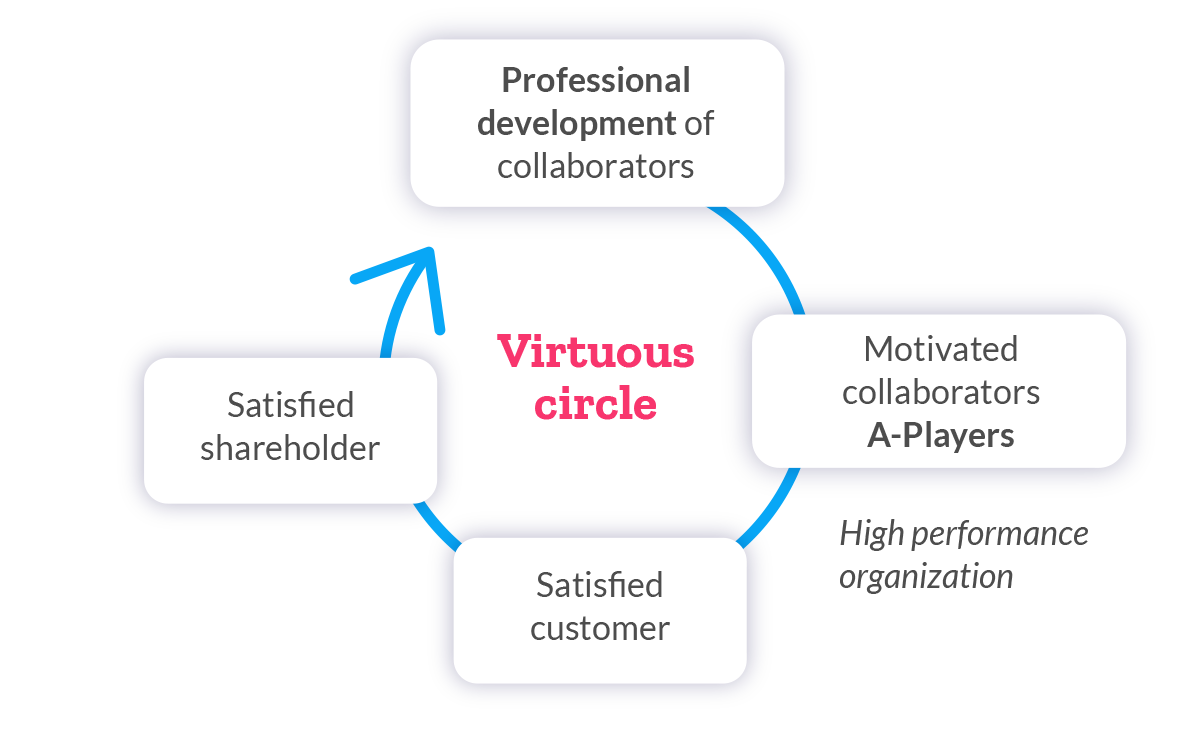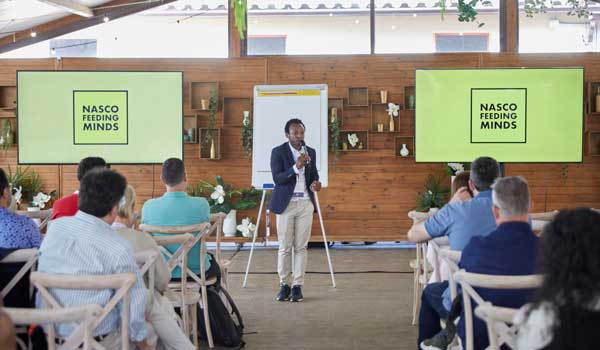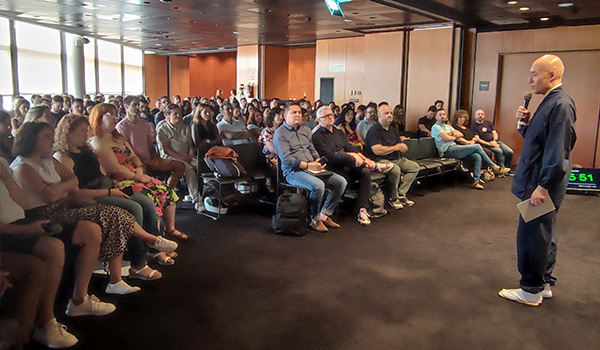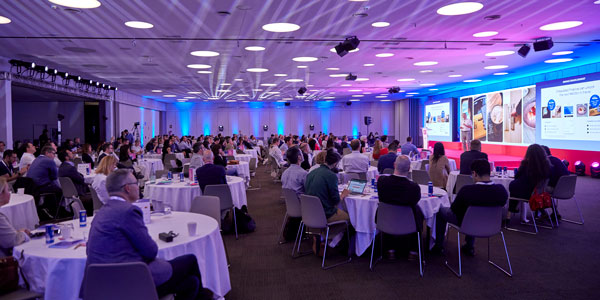What is the purpose of simply working in exchange for money? Is this sufficiently motivating? Humans are beings of meaning and we like to understand why we do things and moreover, if the purpose of what we do aligns with our own personal purposes in life and with our values.
What would we do if we became aware of the negative impact (on other people, on society or on the planet) of our work at a company? If we had the opportunity, would we move to another company where a conscious effort is made to have a positive impact?
We have written three articles describing how a company can also be a place for personal development, why this is so and its benefits. Let’s start with the virtuous (and incomplete) circle of value generation!

A virtuous (and incomplete) circle of value generation
An organization where people are not very motivated and poorly trained is most likely not going to provide a good service and therefore it is not probable that their customers will be satisfied in the best way possible. This can occur when the value contribution is highly focused, paradoxically, on the customer and the company’s shareholders, but where employees are placed in a very low priority.
![]() It is key for collaborators to be aligned in terms of values, that they possess the necessary skills and are motivated
It is key for collaborators to be aligned in terms of values, that they possess the necessary skills and are motivated
Some companies are aware of the importance of having their collaborators culturally aligned and sufficiently motivated (their productivity will increase between 20% and 50% or more1).
The fact that there is an alignment of values in addition to collaborators having the necessary skills provides predictability and trust. This allows us to develop what we call “A-Player”, “the right person in the right seat”2).
Given that these aspects are key factors of ensuring customers receive a better service, investing in these will result in greater economic profits, part of which can be reinvested in the workers and thus improve their wellbeing. This way, we can create a virtuous circle of value generation (chart below).

Going into a little more detail, how can we create this motivating environment?3

Providing sufficient independence for carrying out tasks.

Investing in professional development to create a high-performance organization.

Bringing collaborators together around a corporate purpose (for example, becoming “the best” in our market).

Fostering a good working environment with a great social connection.

Providing recognition to teams as well as individuals.

And of course, by paying good salaries.
![]() If the goal is simply to make more money, then ethically questionable things may happen and instead of creating more value for society, you destroy it
If the goal is simply to make more money, then ethically questionable things may happen and instead of creating more value for society, you destroy it
The problem behind all of this occurs when a company seeks a goal that is merely instrumental to achieve greater economic profits. If the goal is simply to make more money, then ethically questionable things may happen, since, paradoxically, the destruction of social and environmental value, on occasions, is highly profitable.
The concept of profitability has been perverted by the fact that the price of the products we consume does not incorporate the collateral impact of what business schools refer to as externalities (aspects over which the company does not consciously want to feel responsible for). Under a global perspective, instead of creating more value for society, it is destroyed, as the side effects of the business model on people outside the company, on society or the environment are not taken into account. In this dynamic, we consider that this virtuous circle of value generation is incomplete.
Hence, we can reach a paradox where a company has people who are highly motivated, but develops a product that has many negative implications. For example, it might favor a situation where people go through rough times (e.g., working or health conditions), push to create a more unequal society or pollute the planet, worsen climate change, exploit natural resources in a manner that destroys ecosystems, biodiversity and even local communities… All of this, against the United Nations’ Sustainable Development goals (SDG)4.
To avoid this situation, company leadership can ask itself: What kind of impact do I want to have in my life? What is the purpose for which this organization exists? We will discuss this in the next article.

1 Warwick University – Happiness and Productivity
2Jim Collins – Good To Great
3Daniel Pink – Drive
4United Nations – Sustainable Development Goals











